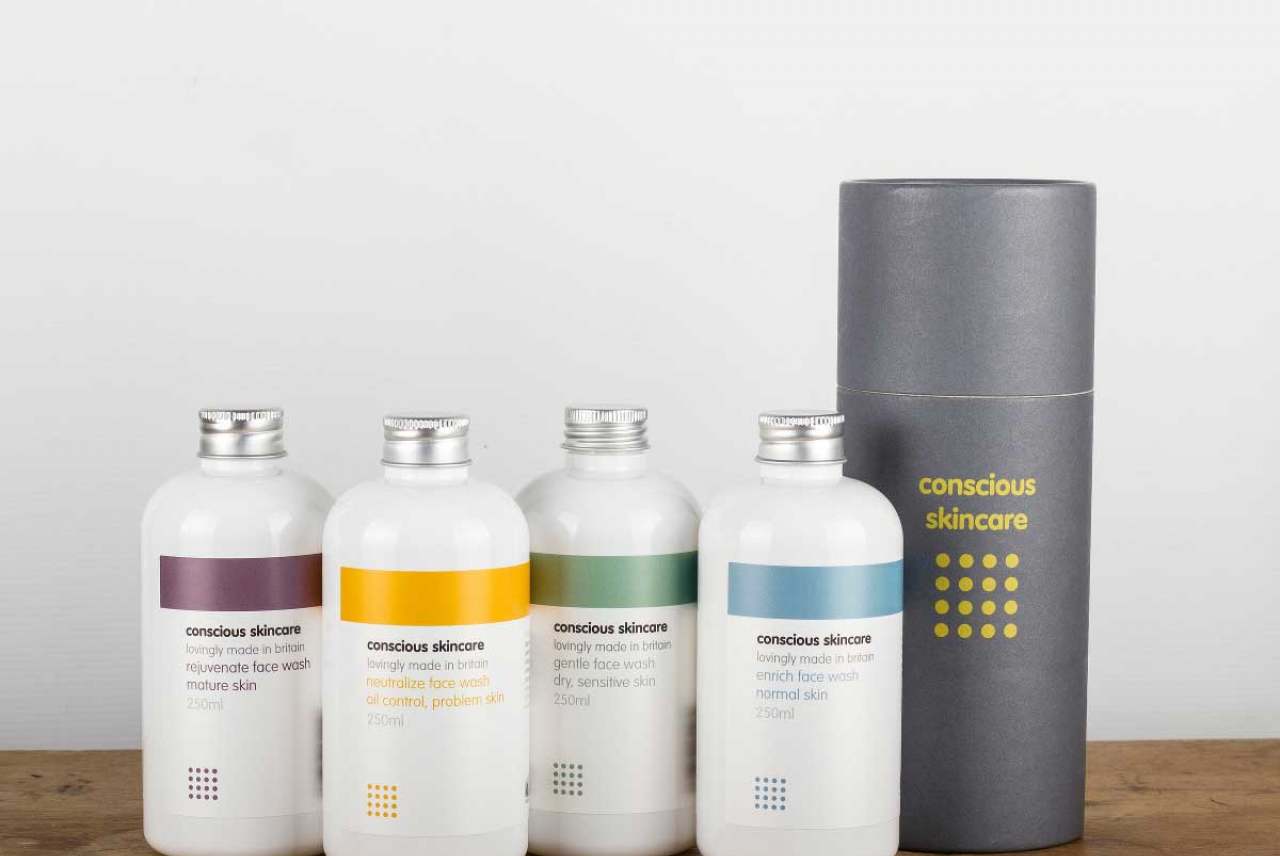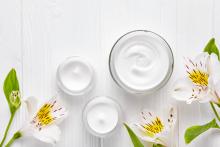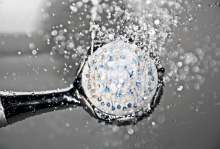The company scores highly in our ethical shopping guides for skincare, shower gel and soap.
What inspired Conscious Skincare, and how did it begin?
Conscious Skincare: A couple of things really. Previously, I worked for a major international company and spent a lot of time in airports where I’d buy a stock of high end face cream in Duty Free. A flight delay one day meant I had some time on my hands and I started to read the ingredients list. I consider myself to be reasonably educated but I couldn’t understand a word. I was then and still am very careful about what I eat, so I had to ask myself why was I putting stuff on my face that I could not comprehend?
That’s when my research began into skincare ingredients. There was little choice for more natural and organic products, just the same water-based ‘thin’ moisturisers out there, which did nothing for my skin - and so the concept of Conscious Skincare was born!
It was a while later when my husband and I moved to Wales that the launch occurred. My husband, Quentin was poisoned by wood stain and was very ill for months. It left him hypo-allergenic to just about everything, so I scrambled around, going through all my notes and came up with some products he could use safely. It was a very scary time in our lives.
What sets you apart from other organic brands?
We personally create all of our products; each one is unique... and then we make them. We use a Soil Association Approved food processing facility near where we live. We’re allowed to use these fantastic facilities because all our ingredients are plant-based: no chemical concoctions here!
We keep the formulations simple, limiting ingredients and using the latest key actives that nature provides. We know exactly what goes into our products and the source of our organic ingredients. We carefully research new ingredients and look for supporting evidence, not faddism or fashion. We verify our suppliers. We define how our products are made and ensure our organic ingredients aren’t overworked so that they retain as much of their nutritional value as possible.
Our products are treated more like a food than a skincare product!
How are toxic ingredients in skincare getting worse as time goes on?
Did you know that today you need to eat four apples to get the same amount of vitamins and minerals we used to get from one, because our soil is so impoverished?
A recent study shows that where humans previously had around 50 different chemical compounds in their bodies 20 years ago, that figure is now around 500.
We receive more and more emails from people who come to us after suffering from allergies or sudden allergic reactions to products they have been using. It’s hardly surprising because, in some cases, where there is a list of ingredients on the packaging, not all of them are declared.
The word ‘parfum’ can account for whole hosts of ingredients, including some preservatives that do not have to be declared on the packaging. Many of these hidden ingredients are known irritants.
There’s so much evidence out there showing a strong link between some of the common ingredients found in mainstream skincare and people’s allergic reactions, which is why, again, those ingredients don’t appear in our ingredients. We’re proud to have won several awards for our ‘Free From’ products!
What does being 'conscious' mean to you?
Conscious Skincare is what we do. Fundamentally it’s about making conscious, thoughtful decisions about what we do and how we do it, whether it’s ingredients, packaging or behaviour, and this philosophy drives everything we do.
From the very beginning, there were certain ingredients that would never make it into our products. Palm oil, parabens or 27 letter unpronounceable preservatives were never going to be included. We have a page on our website called ‘chemicals to avoid’, which lists the ingredients we leave out, and weirdly, they all start with ‘p'.
Which brings us to 'p' for packaging. One of our core goals is to ‘leave no trace’. Our products are packaged in recyclable glass and aluminium, and we have started replacing all PET plastic with glass. Customers can choose if they need a pump, and we offer large size refills. We’ve paid equal attention to our packing materials too.
We have seen the ways manufacturers and shops shift the problem of plastic waste onto their customers. We don’t do that. We use paper tape, cardboard boxes and wrap, biodegradable pellets made from corn starch, which dissolve in water, corn starch bags too, which also biodegrade, and all our paper is made from recycled paper.
Waste and packaging has always been one of my bugbears, long before Conscious Skincare was born. I have written many a letter to CEOs of supermarkets and other companies to encourage them to rethink packaging. At Conscious Skincare, we minimise product waste by not over-ordering and making products in small batches so they’re as fresh as possible for our customers.
Because we only use natural ingredients, any scrapings go into the compost bin if I can’t use it myself. Our clean ingredients mean we’re allowed to make our products in a Soil Association Approved Food Manufacture facility right here in Wales! So our products are made to food hygiene standards.
What are the rewards of running an ethical business?
Having the freedom to decide what we do every day and how we do it! We’re so fortunate to be based in Wales where there’s a lot of business support and the Welsh are incredibly loyal too. We live in a beautiful coastal location with the sea just down the road.
Our office has to be on one of the best industrial parks ever, with lots of greenery, a field outside our office and where flocks of sheep or goats are regular lawnmowers!
There is a social element to your business in your decision to use organic cotton bags. Can you tell us a little about this?
As well as using fair-trade ingredients where we can, Freeset, a fair trade co-operative, make our cosmetic bags using organic cotton and line them with recycled sarees.
The bags are made by women in India to provide them with a job, earn a living wage, escape the poverty cycle and regain their self–esteem. It’s such a positive story for all these lovely ladies. They then have enough money to send their children to school!




